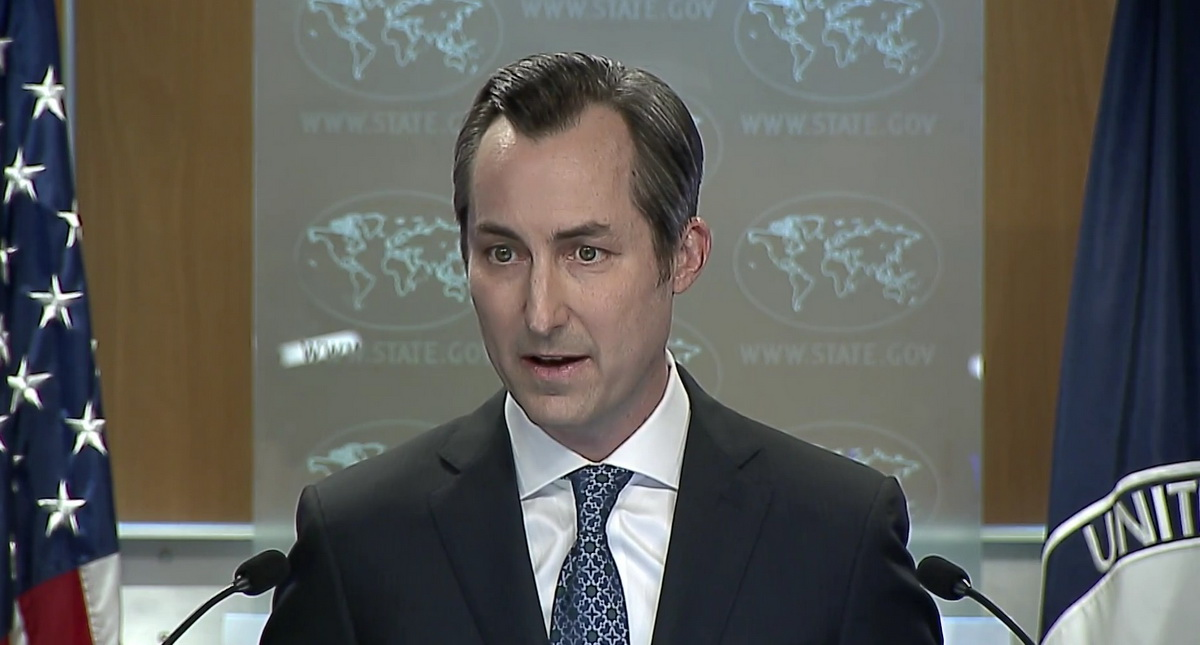Western Pressure Mounts: Extending Sanctions, Seeking Justice, and Addressing Russian Threats in Belarus
 The situation has not changed
The situation has not changed

The United States is extending sanctions against the Belarusian regime; however, the EU still cannot agree on the 11th package of restrictions against Russia. Belarusian independence and sovereignty are a central concern of Western countries. However, they have no strategy to counter Russia in a Belarusian context. The pro-democracy forces in exile are lobbying for tough sanctions against Belarus and Russia over the deployment of nuclear weapons and preparing the ground for bringing the Lukashenka regime to justice for crimes against humanity.
US President Joe Biden has extended for another year sanctions against the Belarusian authorities, imposed in 2006 in connection with actions undermining democratic processes and institutions in Belarus during that year’s presidential election campaign. In August 2021, the sanctions regime was expanded to include several well-known Belarusian businessmen and enterprises due to the repression of protests following the 2020 presidential election and the hijacking of a Ryanair aircraft.
The US Department of Commerce also extended sanctions against Belavia Airlines, introduced on June 16th, 2022, due to the use of US-made aircraft in support of Russia’s invasion of Ukraine, until December 13, 2023. The restrictions prohibit companies worldwide from servicing, maintaining, or otherwise using American spare parts in support of the Belavia air fleet.
Washington believes that Lukashenka’s decision regarding Russian nuclear weapons deployment is irresponsible and provocative and cedes more control to the Kremlin against the will of the Belarusian people. German Chancellor Olaf Scholz considers it evident that Putin plans to absorb Belarus.
Belarusian democratic leader Svetlana Tikhanovskaya called for tough sanctions against Russia and the Lukashenka regime in response to “nuclear blackmail”, as the strategy of waiting and monitoring has been ineffective in preventing hostile Russian interference in Belarusian internal affairs. The sovereignty and very existence of Belarus are under threat.
Meanwhile, EU ambassadors are still unable to agree on the 11th package of sanctions against Russia. It was assumed that the measures would target more than 90 companies worldwide engaged in helping Russia and Belarus circumvent sanctions and may include Chinese companies supplying equipment to the Russian military-industrial complex.
Meanwhile, Lithuania may introduce a 12-month ban on the transit of goods to Belarus and Russia that can potentially be used for aggression against Ukraine. The ban will extend to 65 commodity nomenclature codes, primarily relating to electronics. A draft decree has already been prepared.
At the 111th International Labour Conference in Geneva, the International Labor Organization adopted a resolution on the application of Article 33 of the organisation’s charter to Belarus. The resolution invites ILO members to reconsider their relations with the Government of Belarus.
Democratic forces in exile continue to work to bring the Belarusian regime to justice. Sviatlana Tsikhanouskaya calls for developing a clear plan for bringing to justice those involved in crimes against humanity in Belarus. A preliminary report of facts regarding crimes against humanity in Belarus by Belarusian and International experts has been prepared, and possible justice mechanisms are being explored.
Democratic forces are preparing a criminal case against Lukashenka within the framework of the International Criminal Court relating to the illegal transfer of Ukrainian children to Belarus, and the Prosecutor General of Lithuania, Nida Grunskienė, has authorised pre-trial investigation of Belarusian authorities for the same offence under the Criminal Code of Lithuania.
Subscribe to our newsletter




Situation in Belarus
Constitutional referendum: main consequences


 Video
Video
How to count the political prisoners: are the new criteria needed?


 Video
Video
Paternalism In Decline, Belarusian Euroscepticism, And The Influence Of Russia


 Video
Video












